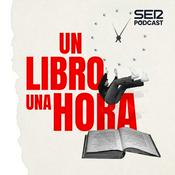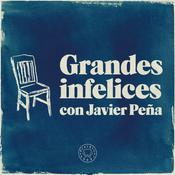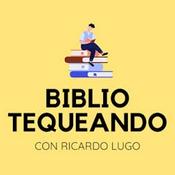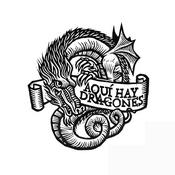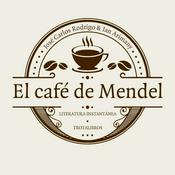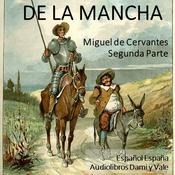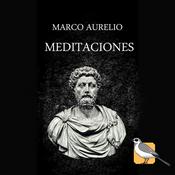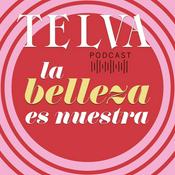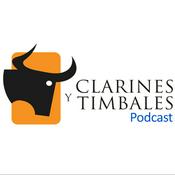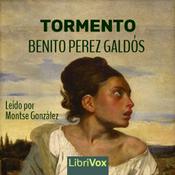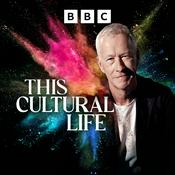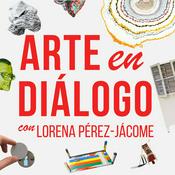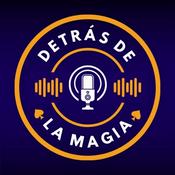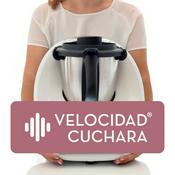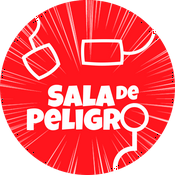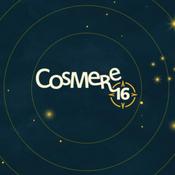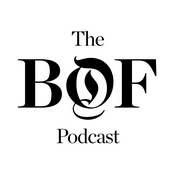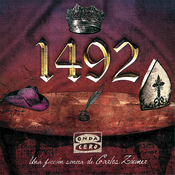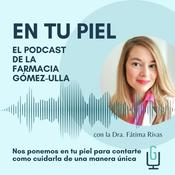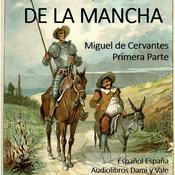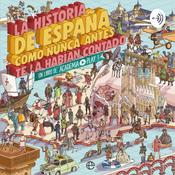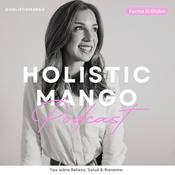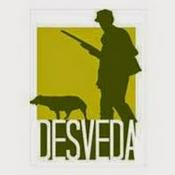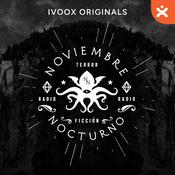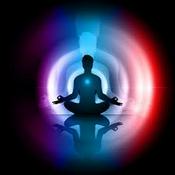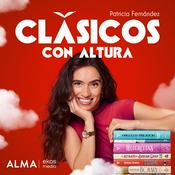379 episodios
375: Why is Your Taste in Wine as Individual as Your Fingerprint? Jordan Salcito Shares the Story
04/2/2026 | 1 hWhy did this author start the book with tasting, rather than history, regions or grapes? Was that because you wanted to get right into the sensory experience, rather than maybe some of the drier knowledge? Why is your experience of what tastes good as personal as a fingerprint? When it comes to wine, what do you mean by structure? Why are these important, these structural components? Do you think they matter more than identifying that, that wine's from Burgundy, that wine's from Bordeaux?
In this episode of the Unreserved Wine Talk podcast, I'm chatting with Jordan Salcito, author of Smart Mouth: Wine Essentials for You, Me, & Everyone We Know.
You can find the wines we discussed at https://www.nataliemaclean.com/winepicks.
Giveaway
Three of you are going to win a copy of Jordan Salcito's terrific new book, Smart Mouth: Wine Essentials for You, Me, and Everyone We Know. To qualify, all you have to do is email me at [email protected] and let me know that you've posted a review of the podcast. I'll choose three people randomly from those who contact me. Good luck!
Highlights
Why does our first impression of a wine's aroma matter more than we realize
Why did Jordan ultimately walk away from the Master Sommelier service exam?
How did the title Smart Mouth come together and capture the spirit Jordan wanted for the book?
Why did Jordan choose to begin Smart Mouth with tasting instead of regions, grapes, or wine history?
Why does Jordan see point scores and rigid wine hierarchies as a form of ego rather than a useful guide for drinkers?
How do different people visualize or conceptualize wine while tasting?
How does Jordan's concept of wine personas differ from traditional tasting language?
What does the TALL framework explain about wine structure?
How can simple sensory exercises help drinkers identify tannin, alcohol, acidity, and earth-driven flavors with confidence?
About Jordan Salcito
Jordan Salcito is an award-winning sommelier, author, and entrepreneur. A wine industry veteran, she has over a decade of experience as a sommelier at restaurants including Momofuku, Restaurant Daniel, and Eleven Madison Park (where she was part of the team to win the award for Outstanding Wine Service from the James Beard Foundation). Her wine programs at Momofuku were regularly recognized in The New York Times, Eater, and Food & Wine, and were named "Most Creative Wine List in the World" by the World of Fine Wine magazine. A pioneer of the ready-to-drink beverage category with her organic Italian spritz company, Drink RAMONA, Salcito will also published her first book, Smart Mouth: Wine Essentials for You, Me, & Everyone We Know, with Penguin Random House's Ten Speed Press.
To learn more, visit https://www.nataliemaclean.com/375.374: What Makes a Wine Feel Soulful? Jordan Salcito Shares the Secret in Smart Mouth: Wine Essentials for You, Me, & Everyone We Know
28/1/2026 | 1 h 6 minWhat makes a wine feel soulful, transporting you beyond taste into a deeper emotional connection? What does experiencing harvest firsthand reveal about winemaking that never show up in books? What makes Northern Rhône Syrah come across as black peppery, smoky, and reminiscent of pastrami?
In this episode of the Unreserved Wine Talk podcast, I'm chatting with Jordan Salcito who has published Smart Mouth: Wine Essentials for You, Me, & Everyone We Know, which was just selected as one of the best wine books of the year by the New York Times.
You can find the wines we discussed at https://www.nataliemaclean.com/winepicks.
Giveaway
Three of you are going to win a copy of Jordan Salcito's terrific new book, Smart Mouth: Wine Essentials for You, Me, and Everyone We Know. To qualify, all you have to do is email me at [email protected] and let me know that you've posted a review of the podcast. I'll choose three people randomly from those who contact me. Good luck!
Highlights
How did Jordan's father shape her earliest understanding of wine as family and connection?
How did working at Restaurant Daniel shift how Jordan understands wine, fine dining, and food and wine pairing?
What does Jordan mean when she describes certain wines as soulful?
What's the difference between the old world approach focused on place and the new world approach focused on control and construction?
Why did working harvests in Burgundy teach Jordan that could never be learned from books?
How did molecular gastronomy pioneer Wylie Dufresne help her see restaurants as a legitimate intellectual and creative path?
How did an early rejection from The New York Times become a signal to redirect her goals?
Why did failing the advanced sommelier tasting exam become the foundation for eventually passing the Master Sommelier tasting on her first attempt?
About Jordan Salcito
Jordan Salcito is an award-winning sommelier, author, and entrepreneur. A wine industry veteran, she has over a decade of experience as a sommelier at restaurants including Momofuku, Restaurant Daniel, and Eleven Madison Park (where she was part of the team to win the award for Outstanding Wine Service from the James Beard Foundation). Her wine programs at Momofuku were regularly recognized in The New York Times, Eater, and Food & Wine, and were named "Most Creative Wine List in the World" by the World of Fine Wine magazine.
Long a student of wine, Salcito passed the tasting portion of the Master Sommelier exam on her first attempt and feels fortunate to have learned so much though working harvests at world-renowned wineries in Burgundy, Tuscany, California and Patagonia. A pioneer of the ready-to-drink beverage category with her organic Italian spritz company, Drink RAMONA, Salcito will also publish her first book, Smart Mouth: Wine Essentials for You, Me, & Everyone We Know, with Penguin Random House's Ten Speed Press this October. Jordan lives in Paris with her family.
To learn more, visit https://www.nataliemaclean.com/374.373: How Do You Create A Successful International Wine Brand? Nam Stanley Tells The Story of Solicantus
21/1/2026 | 54 minWhat goes into creating a successful international wine brand that tells a story before the bottle is even opened? What does it look like to build a young wine brand vintage by vintage? What makes Bordeaux such a hard place to break into as an outsider?
In this episode of the Unreserved Wine Talk podcast, I'm chatting with Namratha Stanley, author of the new memoir Vineyard Melody.
You can find the wines we discussed at https://www.nataliemaclean.com/winepicks.
Giveaway
Three of you are going to win a copy of Namratha Stanely's terrific new book, Vineyard Melody: How One Woman Rebuilt Her Life, One Grape At A Time. To qualify, all you have to do is email me at [email protected] and let me know that you've posted a review of the podcast. I'll choose three people randomly from those who contact me. Good luck!
Highlights
What was it like arriving alone in rural Margaux for an internship?
What made Namratha push through fear, exhaustion, and the pressure of a visa dependent on work?
Why is the French concept of terroir so powerful in understanding the connection between place, identity, and wine?
Why did Namratha make the decision to build her own wine brand instead of becoming an agent for existing wineries?
How did the name and branding for Solicantus come together, and what influenced these choices?
How did a single LinkedIn message lead to Solicantus wines being listed with the LCBO in Canada?
What did the first international sale feel like after years of uncertainty and effort?
Why is Namratha passionate about building philanthropy into her wine and book business?
How did reuniting with her daughter in France mark a turning point for Namratha?
About Namratha Stanley
Namratha Stanley is the debut author of Vineyard Melody, a memoir chronicling her personal and professional transformation. Once confined to a patriarchal household in India, where she was barred from working, she broke free from marital violence and moved to France in 2017 to pursue a Wine MBA. She went on to found Wine Equation, a Bordeaux-based wine merchant company, and created Solicantus, her signature wine brand now distributed in five countries. Today, she serves as Program Director at INSEEC (Omnes), mentors women and students, and donates part of her wine sales to support children's education in India. Her journey—from traditional housewife to entrepreneur—has been featured in Forbes, Decanter and many other magazines. Namratha lives in France with her daughter and two cats, continuing to write and grow her wine business.
To learn more, visit https://www.nataliemaclean.com/373.372: How is Namratha's "Vineyard Melody" memoir the wine version of Eat, Pray, Love?
14/1/2026 | 57 minHow can a wine story rooted in darkness leave you feeling hopeful about your life? Why is France such a symbol of freedom, possibility and reinvention for her? How can discovering France through art, cinema, and wine become an escape into a completely different world?
In this episode of the Unreserved Wine Talk podcast, I'm chatting with Namratha Stanley, author of Vineyard Melody: How One Woman Rebuilt Her Life, One Grape At A Time.
You can find the wines we discussed at https://www.nataliemaclean.com/winepicks.
Giveaway
Three of you are going to win a copy of Namratha Stanely's terrific new book, Vineyard Melody: How One Woman Rebuilt Her Life, One Grape At A Time. To qualify, all you have to do is email me at [email protected] and let me know that you've posted a review of the podcast. I'll choose three people randomly from those who contact me. Good luck!
Highlights
Which childhood moments shaped Namratha's sense of courage and adventure and understanding of injustice?
What is Vineyard Melody about and how does it differ from other wine and reinvention stories?
Why did Namratha feel compelled to write this book despite the risks of telling her truth?
What early warning signs in her marriage did Namratha only recognize in hindsight?
How did the system ultimately fail to protect Namratha and how did learning French become an act of survival?
Why did the language prove so valuable when an unexpected job opportunity in Paris arose?
How did ridicule and resistance at home strengthen her resolve to pursue independence through work?
What was it like to arrive in Bordeaux for her wine MBA?
What did seeing the Eiffel Tower and having her first meal in Paris symbolize about freedom and possibility?
Why did Namratha ultimately decide that leaving India permanently was the only path toward rebuilding her life and identity?
About Namratha Stanley
Namratha Stanley is the debut author of Vineyard Melody, a memoir chronicling her personal and professional transformation. Once confined to a patriarchal household in India, where she was barred from working, she broke free from marital violence and moved to France in 2017 to pursue a Wine MBA. She went on to found Wine Equation, a Bordeaux-based wine merchant company, and created Solicantus, her signature wine brand now distributed in five countries. Today, she serves as Program Director at INSEEC (Omnes), mentors women and students, and donates part of her wine sales to support children's education in India. Her journey—from traditional housewife to entrepreneur—has been featured in Forbes, Decanter and many other magazines. Namratha lives in France with her daughter and two cats, continuing to write and grow her wine business.
To learn more, visit https://www.nataliemaclean.com/372.371: Why Do Some Non-Alcoholic Wines Keep Their Fruity Aromas While Others Lose Everything?
07/1/2026 | 1 hHow did winemakers first figure out how to remove alcohol from wine without destroying it? Why is it so difficult to perfect the flavours and aromas in wine once the alcohol is removed? Why do some non-alcoholic wines keep their fruity aromas while others seem to lose everything?
In this episode of the Unreserved Wine Talk podcast, I'm chatting with Dr Wes Pearson, a senior research scientist at the Australian Wine Research Institute in Adelaide.
You can find the wines we discussed at https://www.nataliemaclean.com/winepicks.
Highlights
How was the German winemaker, Carl Jung, a pioneer in the field of no and low alcohol wine?
Why is the reverse osmosis process better suited to small alcohol adjustments rather than full dealcoholization?
How has the spinning cone column become one of the most effective tools for removing alcohol from wine?
Why is it so challenging to preserve flavour and aroma in non-alcoholic wines?
Why are low alcohol wines often more successful than alcohol free wines?
How can vineyard and fermentation choices reduce alcohol while preserving wine character?
Why do lower alcohol wines preserve a sense of place more successfully than fully de-alcoholized wines?
How do beer producers have more technical options for making low alcohol products than winemakers?
What is the connection between alcohol and mouthfeel?
Why is Sauvignon Blanc often the most successful base for alcohol free wine?
How does Wes envision the future of non alcoholic wine?
Key Takeaways
How did winemakers first figure out how to remove alcohol from wine without destroying it? The story goes that Carl Jung was somewhere in India, in the Himalayas, and he noticed that water boiled at a lower temperature and started thinking about, oh, well you know, they had a family winery and I wonder if we can take ethanol out if we boiled it at a lower temperature. Understanding, of course, classic distillation ethanol boils at around 70-something degrees and water would boil at 100. So you could boil your ethanolic solution, remove the ethanol, trap it on this side, leave your water here or whatever solution you have your ethanol in, and then keep the ethanol. That's classic distillation. Normally we keep the distillate, we keep the alcohol, and get rid of what we've taken it out of. Now we want to keep what we've taken it out of and get rid of the ethanol. So that was the whole premise behind vacuum distillation.
Why is it so difficult to perfect the flavours and aromas in wine once the alcohol is removed?
When that wine comes off the spinning cone column, it's not a pleasant drink. It's extremely acidic. You've concentrated the acids by about a third, and as well, you've lost all the flavor. Also the flavor that balances out all that acid is gone as well. We need to do a lot of work in building that back up. We should use more tools that we have to try to build some of these up, to build flavor. Now, of course, from the economics behind this, these are not expensive products. So we can't just whack everything in there and hope for the best. We have to have some judiciousness when it comes to how much these things cost and how much you can add, and how we can do this to recover what we've taken out and put back so that it's more cost effective. This is all part of the research that we're working on.
Why do some non-alcoholic wines keep their fruity aromas while others seem to lose everything?
When the yeast eat the sugar in the grape juice, those sugars are all attached to all kinds of other chemical compounds. The yeast come along, they eat the sugar, and release the flavor compound. And so those fermentation products, most of them are esters and organic acids. Now the esters are the really pretty things that we smell, all the fruity flavors. And the organic acid portions of those, they're less appealing. Now, when you put those through the dealcoholization machine, the spinning cone column in particular, you get the stinky stuff staying, and you get the nice stuff going. Within Sauvignon Blanc, you lose the acetate, but actually three-mercaptohexanol smells lovely. It smells like passion fruit, and so that stays. Where if your wine doesn't have thiols, something like Chardonnay, which is much lower in thiols, you don't get that retention of that character.
About Dr. Wes Pearson
Dr Wes Pearson is a senior research scientist and sensory group manager at the Australian Wine Research Institute in Adelaide. He holds a BSc in Wine Biochemistry from the University of British Columbia, a diploma in Applied Sensory and Consumer Science from the University of California Davis and a PhD from Charles Sturt University. He has worked in the sensory group at the AWRI since 2010 and has completed hundreds of sensory studies and authored over 25 research papers in that time. He is an alumnus of the Len Evans Tutorial and of Wine Australia's Future Leaders program and sits on the board of directors for the McLaren Vale Grape Wine and Tourism Association. He has judged at multiple capital city and regional wine shows and has been an educator/judge for the AWRI's Advanced Wine Assessment Course for more than a decade. He is also an accomplished winemaker, having made wine in Canada and France, and currently makes wine under his Juxtaposed label in McLaren Vale, South Australia.
To learn more, visit https://www.nataliemaclean.com/371.
Más podcasts de Arte
Podcasts a la moda de Arte
Acerca de Unreserved Wine Talk
The Unreserved Wine Talk podcast features candid conversations with the most fascinating people in the wine world. Your host, award-winning journalist Natalie MacLean, dives into how it feels to compete in the nerve-wracking World's Best Sommelier Competition, the shadowy underground of wine forgery, the zany tactics of a winemaker who hosted a funeral for cork, and more. Nestled in these colourful stories are practical tips on how to choose wine from a restaurant list, pair it with food and spot great values in the liquor store.
Every second episode, Natalie goes solo with an unfiltered, personal reflection on wine. She'll share with you how it feels to be a woman in what is still a largely male-dominated field, her gut reaction to the latest health study that says no amount of alcohol consumption is safe and her journey in writing her next book. She'll reveal these vulnerable, sometimes embarrassing, stories with tipsy wit and wisdom that she's soaked up from 20 years of writing about wine.
This podcast is for wine lovers from novices to well-cellared aficionados.
Sitio web del podcastEscucha Unreserved Wine Talk, Un Libro Una Hora y muchos más podcasts de todo el mundo con la aplicación de radio.es
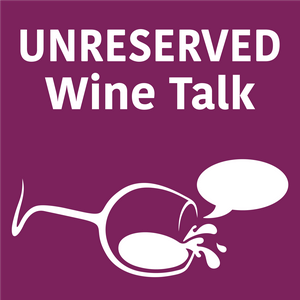
Descarga la app gratuita: radio.es
- Añadir radios y podcasts a favoritos
- Transmisión por Wi-Fi y Bluetooth
- Carplay & Android Auto compatible
- Muchas otras funciones de la app
Descarga la app gratuita: radio.es
- Añadir radios y podcasts a favoritos
- Transmisión por Wi-Fi y Bluetooth
- Carplay & Android Auto compatible
- Muchas otras funciones de la app


Unreserved Wine Talk
Escanea el código,
Descarga la app,
Escucha.
Descarga la app,
Escucha.

